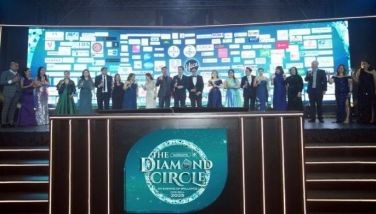Reinforcing cycle

Here is a country where patronage politics and the spoils system reign. There is democracy and a free press, a constitution that guarantees civil liberties, and a system of checks and balances. But it is a weak state, with vote buying and corruption rampant. There is economic growth, but it is not inclusive, and there are pressing policy and social issues. Delivery of basic services is poor.
It’s not the Philippines, circa 2015, but the United States in the late 19th century.
This is how analysts at the World Bank Group headquarters in Washington see the Philippines as we prepare for yet another leadership change in May. WB Country Director Motoo Konishi and lead economist Rogier van den Brink visited our office yesterday to discuss prospects for reforms beyond the 2016 elections.
Van den Brink, whose department is focused on poverty reduction and economic management in the region, showed us newspaper editorial cartoons in the US from the 1880s to the early 1900s, denouncing venal politicians and exploitation of farmers and workers due to monopolies.
The US was emerging from a civil war and going through the second industrial revolution. It was a highly individualistic society, Van den Brink noted. The Americans at the time must have been very much like Filipinos whose attitude of “kanya-kanya” or every man for himself, with no regard for a greater good was often bewailed by the late Manila Archbishop Jaime Cardinal Sin in the years after the 1986 people power revolt.
I’ve just finished reading another novel by my favorite Filipino author, National Artist Frankie Sionil Jose. “Ben Singkol” covers the war years, and it’s depressing to realize how Philippine society has changed so little since Manong Frankie’s youth. Even back then “inclusive growth” was absent and there was a lot of corruption, backstabbing and corrosive political patronage. Inequity and social injustices fueled insurgencies and ruined lives.
* * *
So what did the Americans do to cure their social ills a century ago?
For one, they tried basketball. That’s right – the favorite Pinoy sport. Basketball was developed in 1891 by a Canadian physical educator, physician and sports coach who moved to the United States. But Van den Brink told us the sport was “scientifically” designed to combine individual effort with a collective goal, and it gained popularity across the United States.
President Theodore Roosevelt also promoted American football to forge teamwork in the absence of war.
In post-apartheid South Africa, Nelson Mandela also used sports to promote racial unity.
Reforms of course took more than sports in the United States. But the reforms were notable in that many started from the ground up, at the local level, and people did not wait for government to initiate the changes, Van den Brink and Konishi told us.
Small farmers started cooperatives. Writers and journalists exposed social ills, in works such as “The Jungle,” Upton Sinclair’s 1906 novel about labor exploitation in a meatpacking plant. The novel led not only to labor reforms but also to radical improvements in food safety standards.
Even the invention of the flashlight led to reforms, allowing sociologist and photographer Lewis Hine to sneak into unlit factories and quarters and take pictures that exposed child labor exploitation.
Journalists at the time were branded as muckrakers, but they helped change the way Americans do business.
Reforms were also implemented from the top. Teddy Roosevelt waged an aggressive and effective anti-trust campaign that was sustained by his successor William Howard Taft, the former Philippine governor-general who developed Baguio as a summer resort because Manila was too warm.
There is a “reinforcing cycle” in reforms, the World Bank officials told us. When reforms started working in the US, businessmen made more money so they demanded more reforms and accountability.
“Reforms start reinforcing each other,” Van den Brink said.
Collective action and citizen engagement move people out of apathy and give them a feeling of hope for a better future, the World Bank officials said.
In 40 years, Van den Brink noted, the US had transformed “from a hopelessly corrupt, inefficient, ineffective state” to one that worked and delivered basic services well.
The US of course still has many problems, but its transformation can provide inspiration to emerging democracies like the Philippines.
* * *
Konishi, who addressed businessmen at the Integrity Summit in Manila this week, stressed that government alone cannot do all the work.
Companies that have done well, he told the business gathering, tend to be those that put social problems at the core of their policies and “went to the bottom of the pyramid” and in so doing expanded their customer base.
How do you match social problems with profitability? How can investors make money and create new jobs in underdeveloped areas such as the Bangsamoro region?
Konishi cited as an example fast-food giant Jollibee, which buys its onions from small producers. It is possible, he said, to solve social problems through business.
“Do not leave it to the next government,” Konishi said. “You should take it upon yourself.”
Assessing the prospects for sustaining the reforms of the past six years, the World Bank officials have one message: it’s in our hands. We need not wait for the next president.
* * *
CALIDAD HUMANA: Speaking of faith in the Pinoy, former Chilean ambassador to Manila Roberto Mayorga recently launched a book celebrating the goodness of the Filipino. Published by the Lopez Group’s Energy Development Corp. and printed by ABS-CBN Publishing Inc., “Calidad Humana: Sharing the Filipino Spirit” is the first installment of the diplomat’s tribute to the innate Pinoy quality that he hopes to spread around the world.
- Latest
- Trending

























